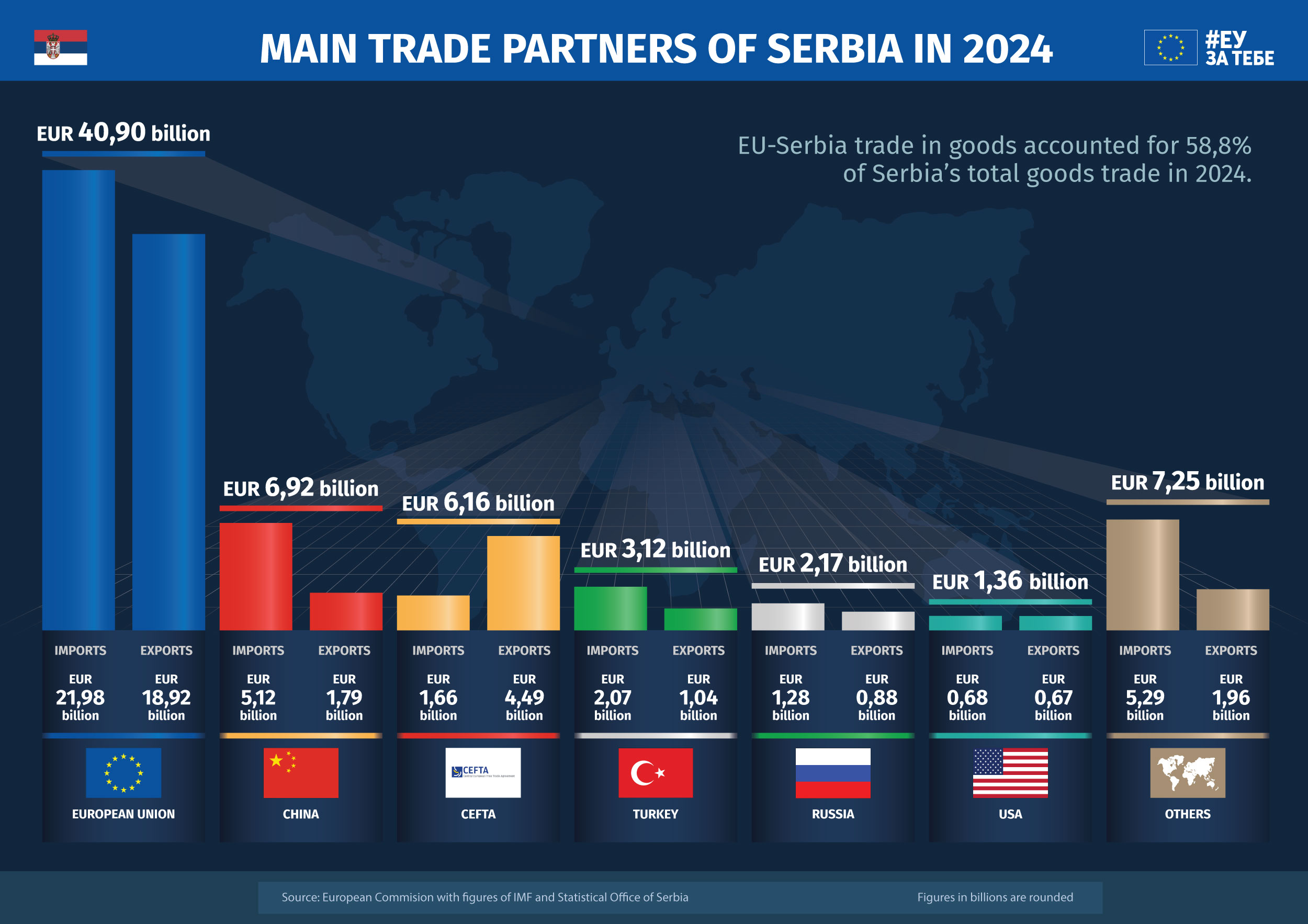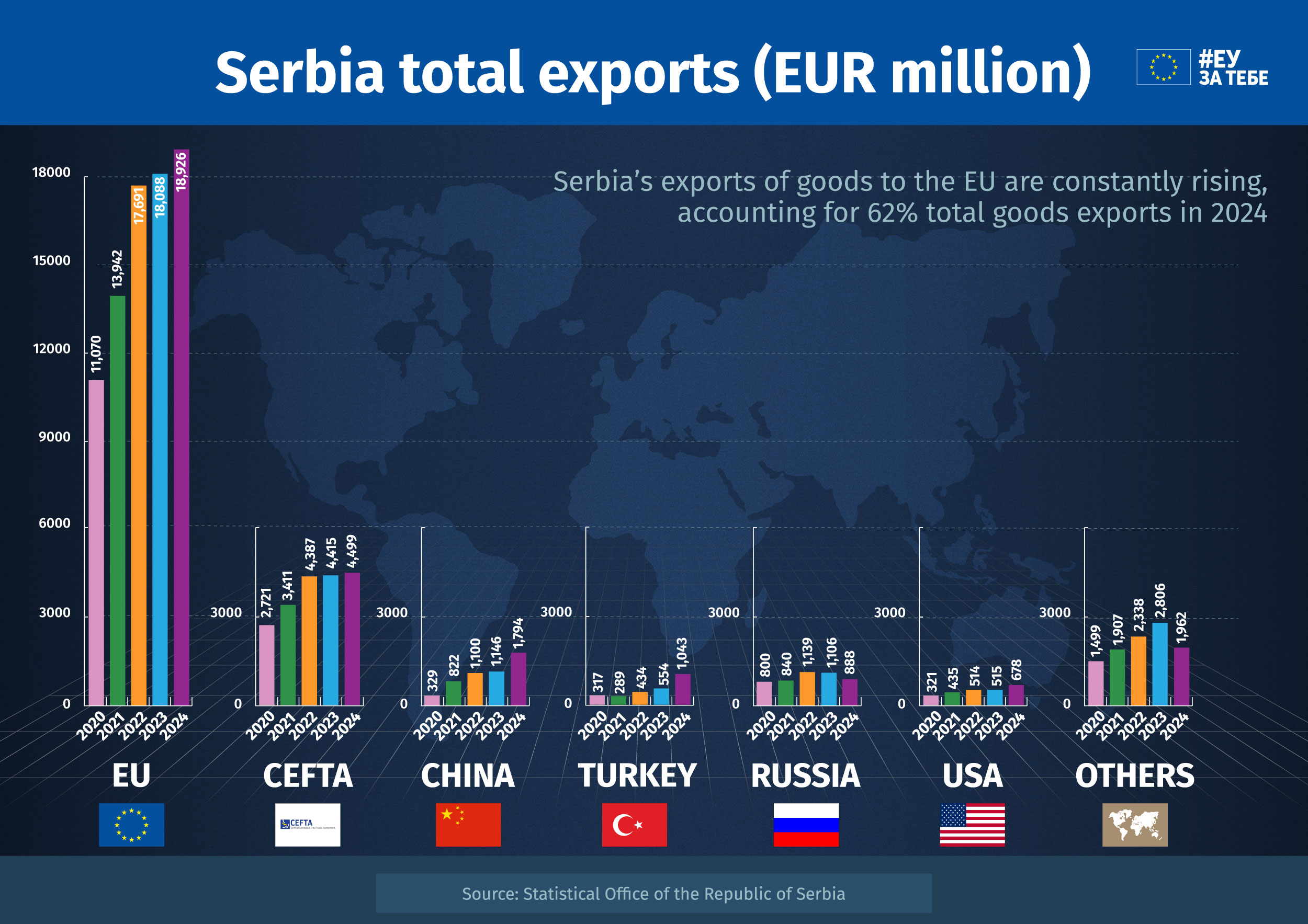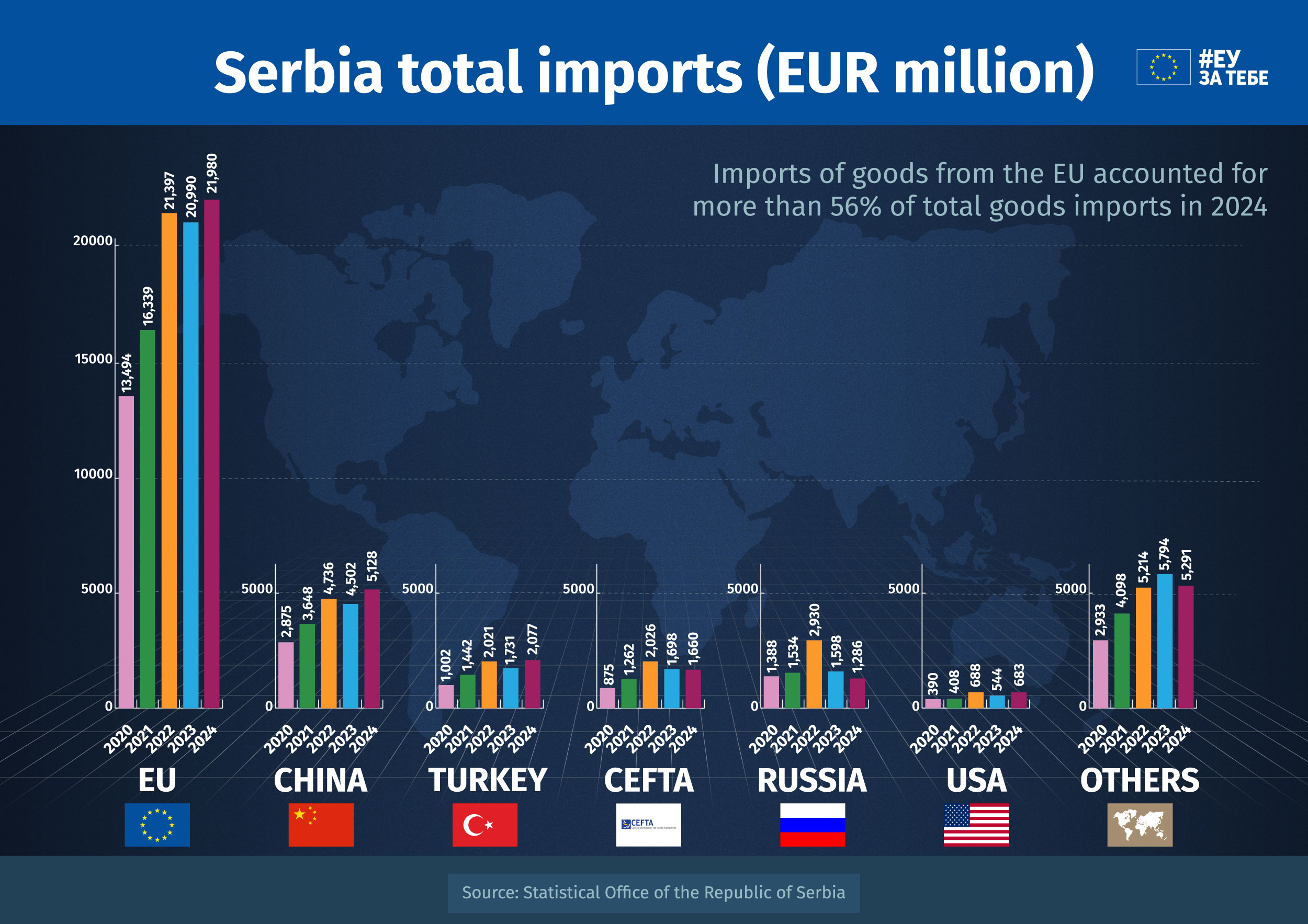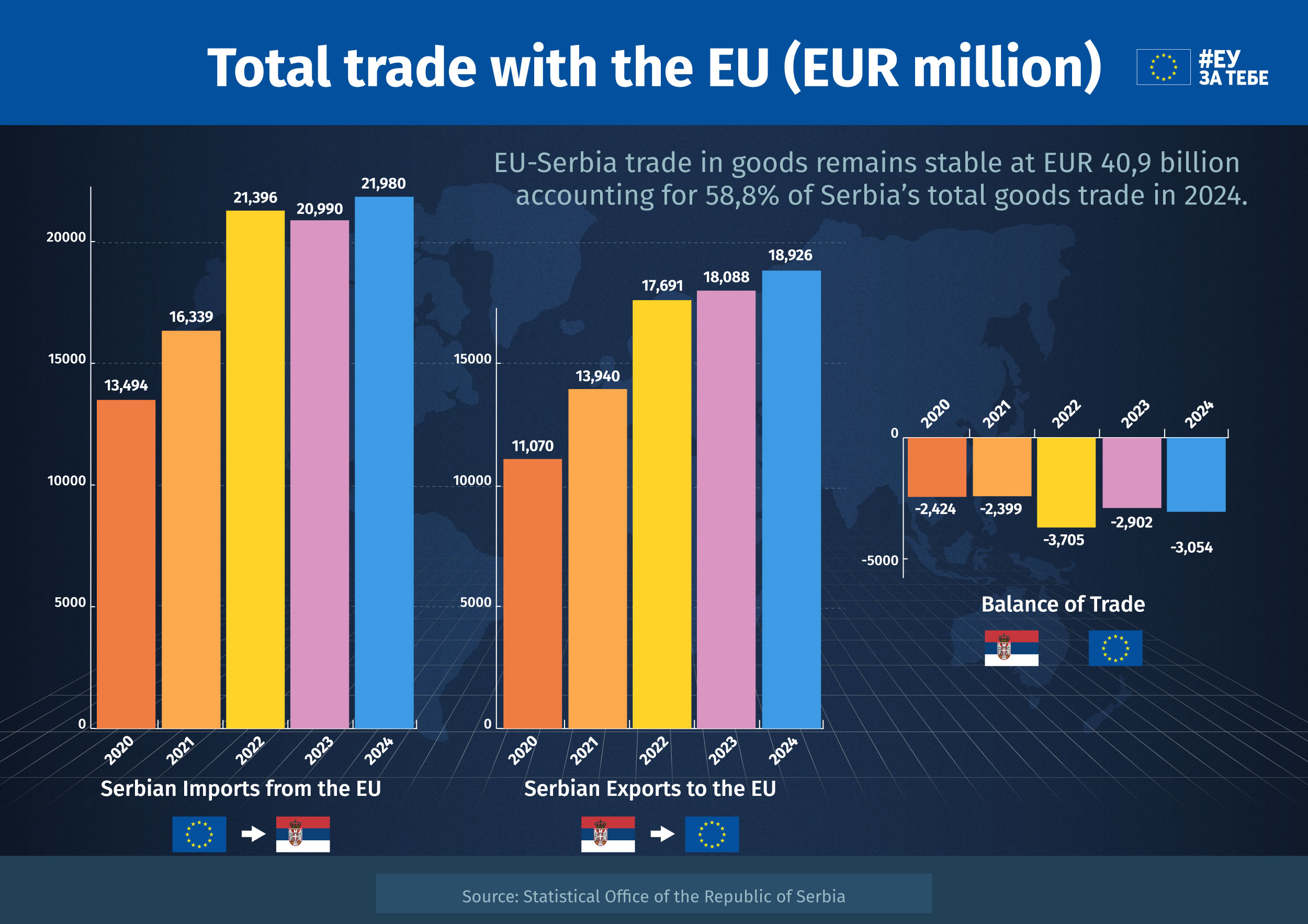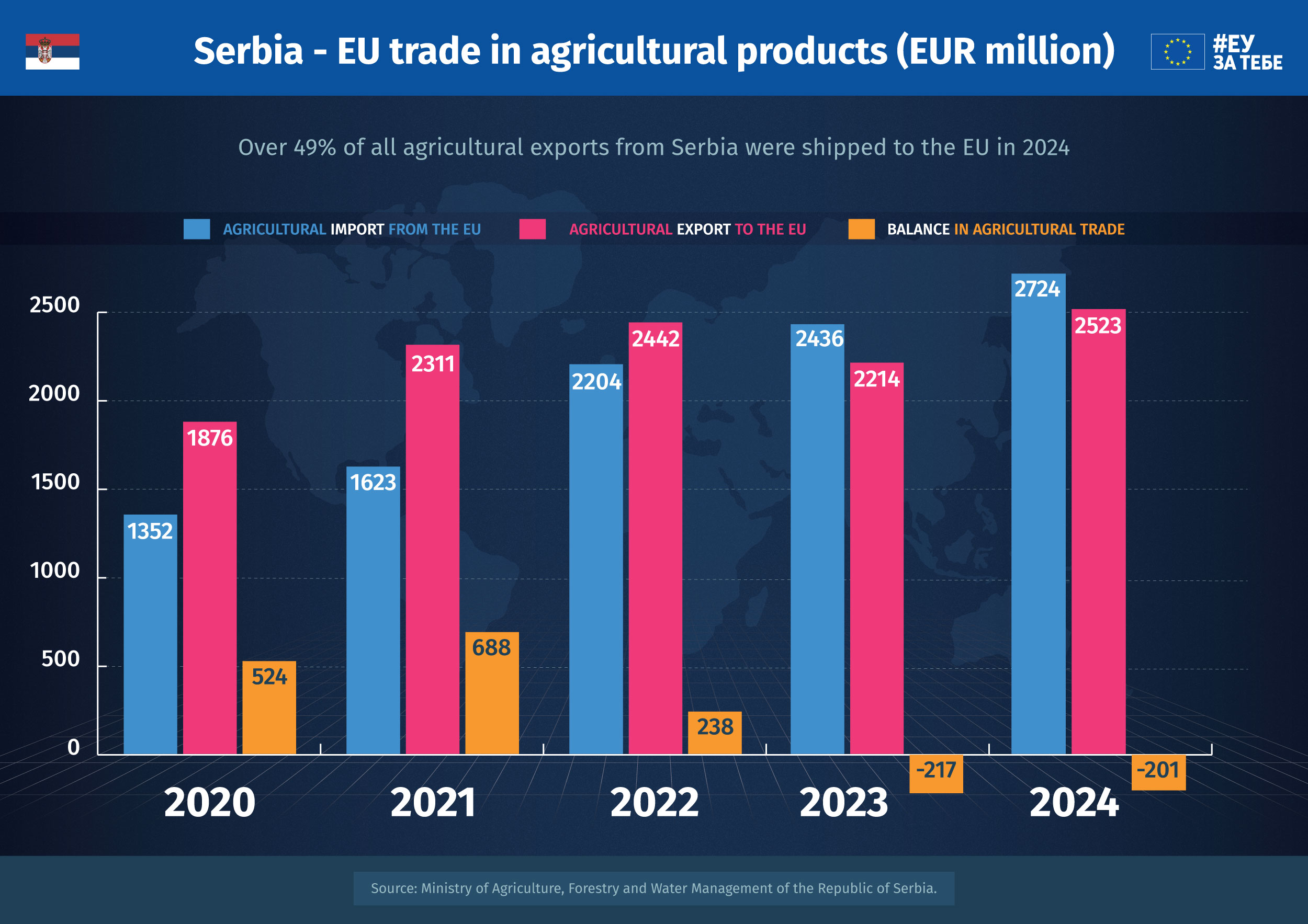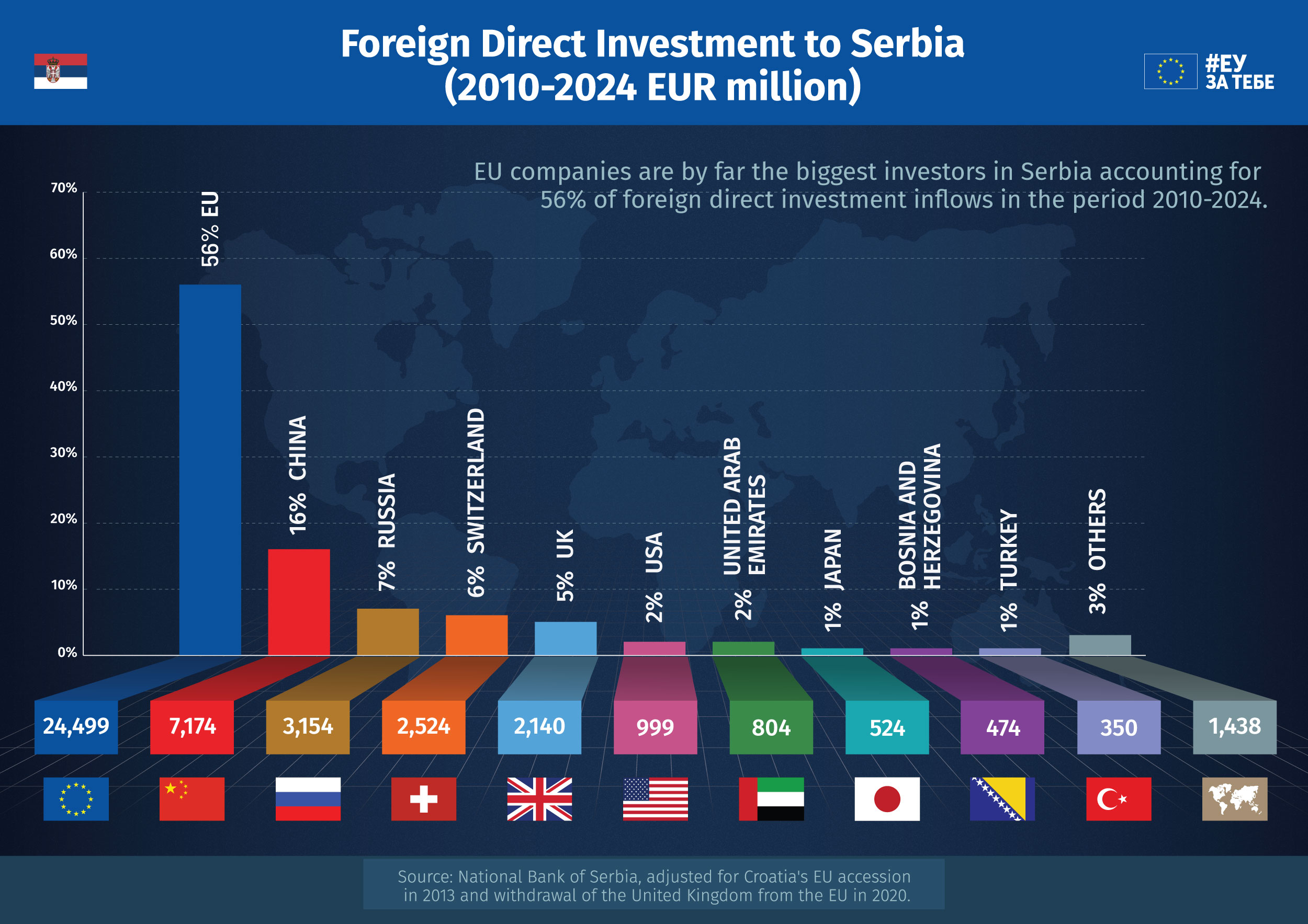Benefits from Serbia – EU trade
Serbia has substantially benefited from trade and economic integration with the EU. The EU is traditionally Serbia’s key trading partner accounting for almost 59% of Serbia’s total trade in 2024, with similar percentages persisting over the years. The value of Serbia’s exports to the EU have grown six fold from nearly EUR 3.2 billion in 2009 to just below EUR 19 billion in 2024, in previous 15 years!
The total value of Serbia’s exports to the EU reached a new record in 2024, close to EUR 19 billion. This figure significantly exceeds the pre-pandemic record registered in 2019 at EUR 11.7 billion.
Furthermore, the EU market traditionally represents the most important export destination for Serbian agricultural products with around half of agricultural exports shipped to the EU.
Serbia’s agricultural exports to the EU quadrupled over the past decade and a half, from EUR 640 million in 2009 to EUR 2.5 billion in 2024. At the same time, Serbian imports of agricultural products from the EU have been on a steady rise from EUR 440 million in 2009 to over EUR 2.7 billion in 2024.
EU – Serbia’s most important investor
Foreign direct investments (FDI) coming from the EU accounted for more than 56% of total FDI registered in Serbia in the period 2010-2024. In absolute terms, FDI from the EU countries accumulated to a total of EUR 24.5 billion over the past 15 years.
Companies from the EU have been the leading investors in Serbia over the previous decades. These companies have brought efficiency, modern technologies and know-how into the Serbian economy, providing jobs for many Serbian people. EU companies have also brought new corporate culture and EU values into Serbia’s economy changing the way Serbian economy operates with impact on individuals and society as a whole.
This has in turn significantly increased productivity and competitiveness of the Serbian economy, boosting its export potential, increasing budget revenues and generating economic growth. Ultimately, opening up of the Serbian market to companies from the EU has generated a variety of choice and lower prices for consumers.

